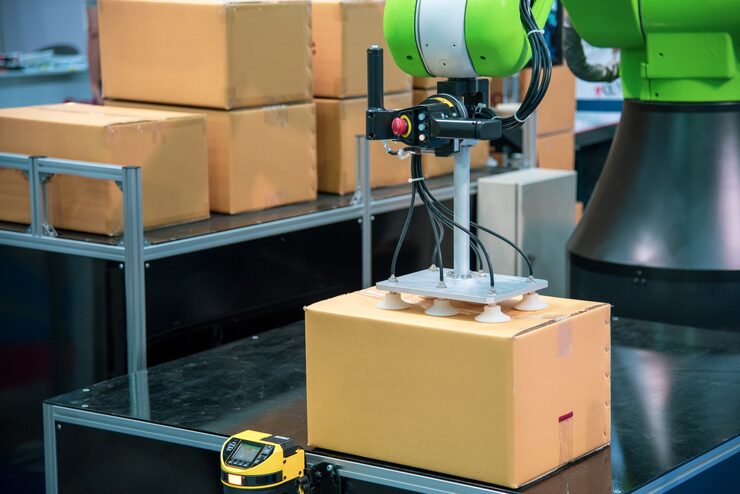Courier Packaging Innovations are revolutionizing the shipping industry by introducing eco-friendly, efficient, and sustainable solutions. With the global rise of e-commerce, packaging waste has become a major environmental concern. Businesses, logistics companies, and even home-based entrepreneurs are exploring advanced packaging materials, reusable solutions, and smarter delivery strategies to minimize waste and reduce their carbon footprint.
The Environmental Challenge of Traditional Packaging
Traditional packaging, including plastic wraps, Styrofoam inserts, and single-use cardboard, contributes significantly to pollution and landfill waste. Millions of tons of packaging materials are discarded annually, leading to environmental degradation and resource depletion. Consumers are increasingly aware of these issues, demanding greener alternatives from brands and delivery services.
Courier Packaging Innovations address these challenges by integrating sustainable materials, modular designs, and reusable packaging methods. Businesses that adopt these solutions not only protect the environment but also appeal to eco-conscious customers, enhancing brand reputation and loyalty.
Sustainable Materials for Modern Packaging
One key area of Courier Packaging Innovations is the use of sustainable materials. Biodegradable plastics, recycled cardboard, and compostable fillers are replacing traditional packaging components. Companies are now sourcing renewable materials, such as bamboo, cornstarch-based plastics, and hemp fibers, which break down naturally without harming ecosystems.
For example, a European courier company implemented fully compostable mailers made from plant-based polymers. This small adjustment resulted in a significant reduction in non-biodegradable waste, inspiring other logistics providers to explore similar innovations.
Reusable and Modular Packaging
Another aspect of Courier Packaging Innovations is reusable and modular packaging. Businesses are developing packaging that can be returned, sanitized, and reused multiple times. Modular designs allow packages to adapt to different product sizes, reducing the need for additional fillers or oversized boxes.
E-commerce giants have begun pilot programs where customers return packaging for reuse, incentivized through discounts or loyalty points. This approach not only minimizes waste but also encourages consumer participation in sustainable practices.
Smart Packaging Technologies
Technology-driven solutions are transforming courier packaging into intelligent systems. Smart sensors, QR codes, and IoT-enabled packaging provide insights into shipment conditions, optimize box sizes, and reduce excess material usage.
For instance, some delivery services use sensors to monitor humidity and temperature, ensuring sensitive products arrive safely without excessive protective padding. These innovations improve efficiency while aligning with eco-friendly objectives, illustrating how sustainability and technology can intersect in modern logistics.
Consumer Awareness and Participation
Customer engagement plays a crucial role in the success of Courier Packaging Innovations. Educating consumers about sustainable practices, encouraging recycling, and promoting reusable packaging programs helps amplify environmental impact.
Real-life examples include subscription-based services that send products in reusable containers, with customers returning them during subsequent deliveries. Such initiatives not only reduce packaging waste but also foster a culture of shared responsibility between businesses and consumers.
Reducing Carbon Footprint Through Packaging Optimization
Efficient packaging design contributes to lower carbon emissions by optimizing shipping volumes. Lightweight materials, compact designs, and minimized fillers allow delivery vehicles to carry more parcels per trip, reducing fuel consumption and emissions.
Logistics providers collaborating with eco-conscious courier companies report measurable reductions in greenhouse gas emissions, demonstrating that Courier Packaging Innovations can significantly impact environmental sustainability while maintaining operational efficiency.
Integration With Circular Economy Practices
Courier packaging innovations increasingly align with circular economy principles. Materials are recycled, repurposed, or reintegrated into production cycles, ensuring minimal waste. Businesses implement take-back programs and collaborate with recycling partners to close the loop on packaging life cycles.
Small and medium-sized enterprises, as well as multinational corporations, are investing in research and development to enhance the recyclability and reusability of packaging materials. These efforts reflect a growing industry commitment to sustainable logistics and responsible business practices.
Industry Trends and Future Outlook
Emerging trends in Courier Packaging Innovations include biodegradable inks, edible packaging for food deliveries, and AI-powered logistics platforms that predict packaging needs accurately. Startups are experimenting with zero-waste shipping models, offering creative and practical solutions that are scalable across industries.
The future of courier packaging lies in combining sustainability with operational efficiency. As consumer awareness grows and regulatory pressures increase, businesses adopting innovative packaging strategies will lead the way in environmentally responsible logistics.
Read also:

